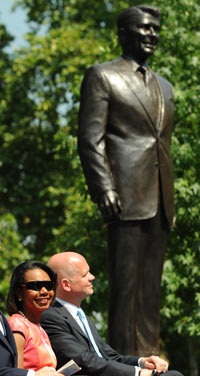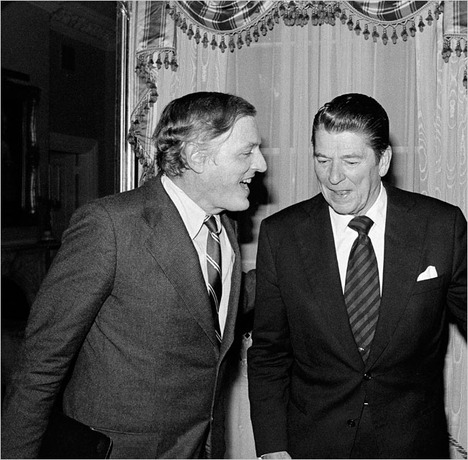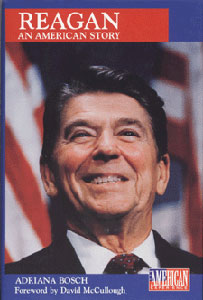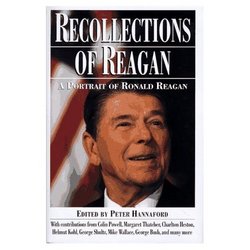Today (2/6/2012) is Ronald Reagan’s 101st birthday.
(p. A15) Jim Baker, his first and great chief of staff, and his friend, remembered the other day the atmosphere of merriness around Reagan, the constant flow of humor.
But there was often a genial blackness to it, a mordant edge. In a classic Reagan joke, a man says sympathetically to his friend, “I’m so sorry your wife ran away with the gardener.” The guy answers, “It’s OK, I was going to fire him anyway.” Or: As winter began, the young teacher sought to impart to her third-graders the importance of dressing warmly. She told the heart-rending story of her little brother, a fun-loving boy who went out with his sled and stayed out too long, caught a cold, then pneumonia, and days later died. There was dead silence in the schoolroom as they took it in. She knew she’d gotten through. Then a voice came from the back: “Where’s the sled?”
The biggest misunderstanding about Reagan’s political life is that he was inevitable. He was not. He had to fight for every inch, he had to make it happen.
. . .
He didn’t see himself as “the great communicator.” It was so famous a moniker that he could do nothing but graciously accept the compliment, but he well understood it was bestowed in part by foes and in part to undercut the seriousness of his philosophy: “It’s not what he says, it’s how he says it.” He answered in his farewell address: “I never thought it was my style or the words I used that made a difference: it was the content. I wasn’t a great communicator, but I communicated great things.” It wasn’t his eloquence people supported, it was his stands–opposition to the too-big state, to its intrusions and demands, to Soviet communism. Voters weren’t charmed, they were convinced.
For the full commentary, see:
PEGGY NOONAN. “Ronald Reagan at 100; Being a good man helped him become a great one.” The Wall Street Journal (Sat., February 5, 2011): A15.
(Note: ellipsis added.)



 Source of book image:
Source of book image: 